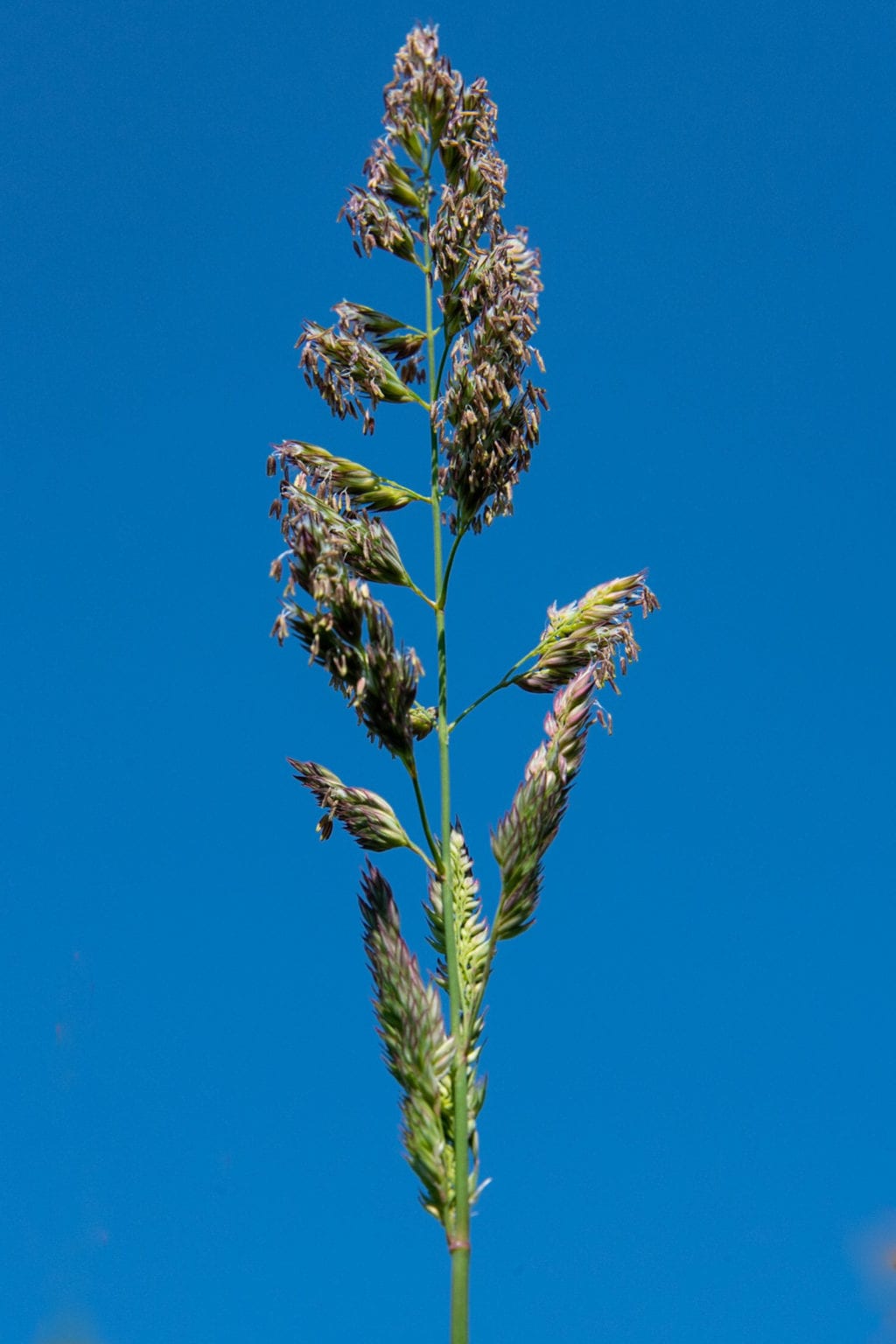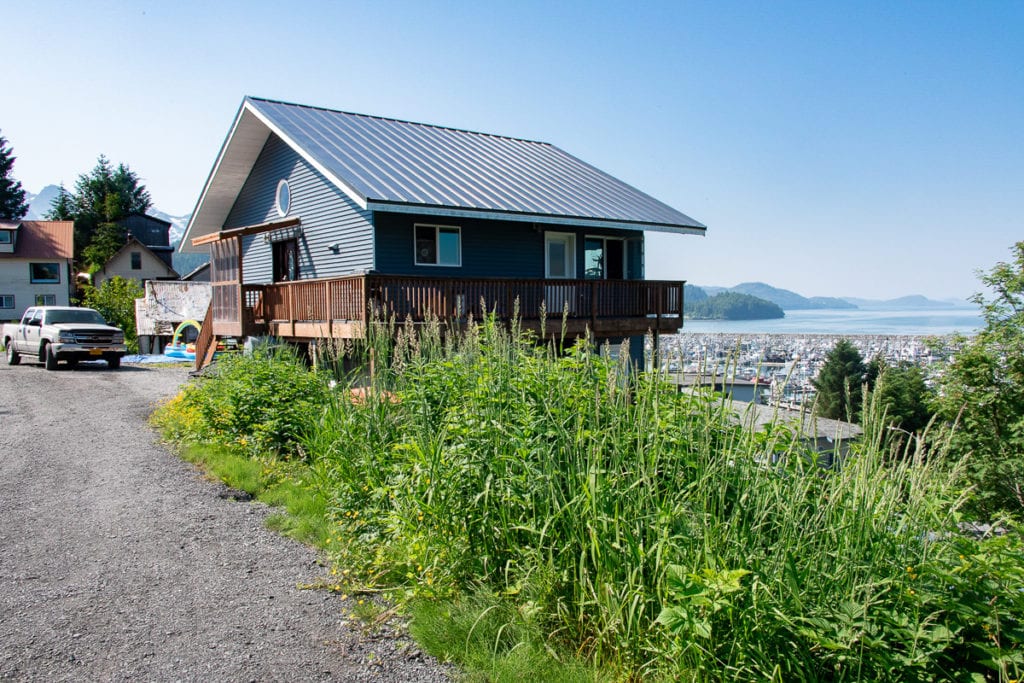
It’s not often that a sustainability nonprofit stands accused of harming the environment. The Copper River Watershed Project, however, has faced criticism for its use of herbicide against reed canary grass, an invasive plant that has appeared around Cordova.
Some residents are concerned that herbicide spraying could pollute local waterways and make wild berries inedible. However, the chemical chosen by the Copper River Watershed Project cannot spread in an active form through soil and is “essentially non-irritating” to birds, fish and mammals, according to manufacturer Monsanto. Because Roundup Custom for Aquatic and Terrestrial Use won’t spread around by itself, it must be directly hand-sprayed onto a plant to take effect, says Chantel Adelfio, invasive plants coordinator for the Copper River Watershed Project.
The Copper River Watershed project uses herbicide only as a means of last resort, where methods such as digging would be impractical, says Adelfio. Even then, only the lowest recommended concentration of herbicide is used. After years of spraying Roundup Custom for Aquatic and Terrestrial Use around Cordova, there have been no instances of harm to people or the environment, she says.
“I understand why there’s concern, and I highly encourage people to come talk to me,” Adelfio said. “We’re not going by with a huge truck, spraying the entire area. We’re spraying very specific stands of reed canary grass.”
But not everyone is reassured. Pamela Miller, executive director of Alaska Community Action on Toxics, believes that too much trust has been put in Monsanto’s safety guarantees. Miller has drawn attention to the effects of glyphosate, the most commonly used herbicide worldwide and the active ingredient in Roundup Custom for Aquatic and Terrestrial Use. Glyphosate has been linked to non-Hodgkin lymphoma, kidney tumors and various other forms of cancer in animal studies, according to a report compiled by ACAT. Additionally, in 2015, the World Health Organization identified glyphosate as probably capable of causing cancer in humans.
“I have very serious concerns,” Miller said. “There has been a flood of new studies about the long-term environmental and health effects of this chemical. Spraying a cancer-causing chemical near water doesn’t seem to be such a great idea.”
Although recent studies have linked glyphosate to cancer, research conducted throughout the ’80s and ’90s found the chemical not to be carcinogenic. Adelfio believes that these mixed results provide no strong reason to conclude that glyphosate is likely to cause cancer.
“That’s the thing with studies: an individual study might find a link, but that individual study is not going to be enough to confirm that something is carcinogenic,” she said. “So far, that result has not been able to be reproduced.”

Why can’t reed canary grass simply be pulled up or mowed down like other weeds? While a weed like a dandelion has a single, thick taproot, reed canary grass sends out a network of roots that spreads horizontally. Pull up a stalk of reed canary grass and the roots will survive, possibly even sending up two or more new stalks. To kill the roots, reed canary grass can be mowed and then covered with an opaque tarp which remains in place for three years. Even after three years, the grass may have put up new stalks beyond the edge of the tarp. If a shred of root is left underground, the plant may eventually return.
This tenacious grass is sometimes planted to stabilize soil, but in Alaska its dense growth also crowds out native foliage and prevents animals from sheltering. In water, reed canary grass roots can catch sediment and turn stony riverbeds silty, interfering with salmon spawning. Wetland areas elsewhere in the US have been so thoroughly dominated by reed canary grass that waterfowl cannot stay there until the stiff, resilient stalks are cleared with heavy machinery.
Small stands of reed canary grass can be dug up, but larger stands would require extensive and destructive digging, Adelfio said. These are the stands that must either be covered with tarp for three years or sprayed with herbicide.
Though criticism of the Copper River Watershed project’s use of herbicide has picked up following its Friday, June 7 announcement in The Cordova Times, the same chemical has been used around Cordova for years without incident, Adelfio said. Less spraying will be necessary this year than in 2018, suggesting the herbicide has been effective.
“Personally, I don’t like the idea of Roundup at all, but I believe that the Copper River Watershed Project has the best interests of the community at heart,” said Carol Hoover, executive director of the Eyak Preservation Council. “I think we have to fight this plant every other way we can, but I’m not going to say that we’re flat against herbicide spraying.”
The Copper River Watershed Project is currently planning a public meeting in partnership with the Eyak Preservation Council and the Forestry Service. The meeting will give an opportunity for concerned or curious Cordovans to ask questions.
“I’m not willing to make a snap judgment for my organization,” Hoover said. “I need to know more, so I’m going to attend these meetings … Let’s all get on the same page as to the best way to handle this invasive reed canary grass.”





